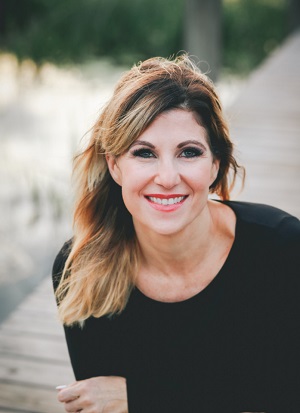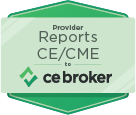Course Description
Are you an SLP or OT and are struggling to treat Pediatric Feeding Disorder or Selective Feeding Disorder? This course will give you the nuts and bolts of feeding therapy, so you have solid tools for evaluating and treating kids as soon as you go back to work! Build your confidence evaluating and treating a variety of children with sensory, behavioral, and oral motor concerns so you know how to plan your sessions and counsel parents. From evaluation to discharge, we will cover case studies, sensory and behavioral feeding treatment techniques, and what to do in tricky situations. Leave this course feeling ready to take on complex and challenging feeding patients including children with sensory concerns, ASD, oral motor deficits, gastrointestinal concerns, and more.
Course Requirements:
- Computer with internet and working speakers/sound are required for this course.
- Course must be completed within 30 days of activation (activate course within 6 months of purchase).
- An online multiple-choice quiz (80% passing score) and submission of an online evaluation form are required for successful completion.
- A certificate of completion will be available to print immediately after course is successfully completed.
- SLPs - ASHA CEUs may be obtained by completing the online ASHA form and checking the "Report to ASHA" box.
Course Objectives
Upon successful completion of this course, participants will be able to:
- Complete a comprehensive feeding evaluation with confidence
- Explain the importance medical implications have on feeding disorders
- List two reasons why feeding difficulties can be so hard to treat
- Recognize the similarities and differences between treatment approaches and why this matters
- Recommend treatment approaches for various case studies
- Describe how other medical professionals play a role in feeding therapy and how to utilize them
- Recommend treatment options and therapy approaches to parents and caregivers
- Explain the importance of family support and parent buy-in

Kelly Komisaruk
M.Ed., CCC-SLP
Kelly Komisaruk, M.Ed. CCC-SLP is a speech-language pathologist specializing in feeding difficulties located in Florida. After gaining her education at Central Michigan University and The University of Virginia, she moved to Florida to pursue her career. After years of honing her skills working with children, she took on the challenge of being one of the initial therapists at Nemours Children’s Hospital in 2012. Always having a love of feeding, she was a founding member of the Nemours Childrens Hospital Outpatient and Inpatient Intensive Multidisciplinary Feeding Team helping to design and implement both programs. Today, after helping hundreds of children learn to love food, she is proud to offer her services both virtually and in person to the Central Florida area and beyond! She opened up her practice in Lake Nona in 2020 and has grown to offer feeding services to children, teens, and adults. She is about to open up her intensive brick and mortar feeding clinic in 2022 where she plans to expand the services she offers to families nationwide. She has specific interest in helping people with anxiety around food, food phobias, and helping other clinicians learn how to help others enjoy eating!
Financial Disclosure: Kelly receives honoraria from CIAO Seminars for the presentation of this course.
Non-Financial Disclosure: None
75 Minutes
Why feeding is so difficult to treat/Various approaches to feeding Treatment
60 Minutes
Medical issues and how they are related to feeding
45 Minutes
How can other professionals help me and the importance of family buy-in
90 Minutes
How to do a comprehensive feeding evaluation with Template
Delivery VIA:
- Online - This course is offered in an online, on demand format.
Contact hours pre-approved for:
- 6 Hours
- CIAO is an ASHA Approved Provider (0.6 ASHA CEUs) bubble sheet submission required
- ASHA CE Provider Approval and use of the Brand Block does not imply endorsement of course content, specific products, or clinical procedures.
- This course meets PDU requirements for NBCOT (6 PDUs)
- CIAO is an Approved Provider for the Florida Board of Occupational Therapy
-
- Approved for:
- 6 Hours Registered with CEBroker for OT/COTAs in AL, AZ, GA, LA, MS, SC, TN
- 7 Hrs. OT/COTAs in FL (CE Broker #20-937776)
Course meets requirements for:
OT/COTAs in AL, AK, AZ, AR, CA, CO, CT, DE, GA, HI, ID, IA, IN, KS, ME, MD, MA, MI, MN, MS, MO, MT,
OT/COTAs in NE, NV, NH, NJ,, NY, NC, ND, OH, OK, OR, PA, RI, SC, SD, TN, TX, UT, VA, WA, WV, WY

Intermediate Level
0.6 ASHA CEUs

CIAO Automatically reports to CE Broker for Florida Occupational and Physical Therapists and Assistants.
Florida SLPs can either use the ASHA CE Participant Form (Bubble Sheet) or self-submit through CE Broker.

CIAO is recognized on the NBCOT Provider Registry (meets PDU requirements for NBCOT)
Good presenter. Down to earth and reasuring.
- Redmond, OR / Dec 2022
Wonderful presenter. Very clear and down to earth. Thank you!
- St Augustine, FL / Nov 2022
-The speaker was highly knowledgable; however, her presentation style was slow, extremely repetitive, and made the course feel like it dragged on and was a lot longer than it needed to be.
-Appreciated the case studies and real-world examples / walk through of treatment and tools.
-Many misspellings on slide handout.
- San Bernardino, CA / Oct 2022
Overall, learned the importance of GI involvement and medical aspects for feeding.
- Rancho Cucamonga, CA / Oct 2022
The speaker obviously was an expert in her field and spent time on this presentation. I appreciated the definitions of the medical issues that could be causing feeding issues. I liked the examples of adaptive feeding devices that could be used, and actual tx ideas for various issues, but all together that probably made up 30 minutes of the whole training. Most of what she talked about was common sense, and she often took forever to make a point, repeating herself frequently, with nothing solid to gain from it (for example she talked about going up and down a ladder in therapy for over 10 minutes with no useful information). I think it could've been condensed into a 1-2 hour course. I would've liked more specific tx ideas and examples, to pull out of my "toolbox" when working with feeding issues. I would've preferred more ideas from the expert, rather than her asking the audience for ideas for each case study.
- Redlands , CA / Oct 2022
More examples and ideas for treatment.
- Sauk Rapids, MN / Oct 2022
thank you! great information
- Ocala, FL / Sep 2022
I overall liked the course. I feel it could have been even better by the presenter going over mechanics and skills for actual feeding (chewing, tongue functioning, etc.).
- St Cloud, MN / Sep 2022
 ×
Home
Calendar
Courses
Club CIAO
Request A Course
VitalStim® Info
VitalStim® Registry
Products
eCourse Bundles
About Us
Our Mission
Podcasts
FAQs/Forms
Toys & Tools
Search
Contact
Login!
×
Home
Calendar
Courses
Club CIAO
Request A Course
VitalStim® Info
VitalStim® Registry
Products
eCourse Bundles
About Us
Our Mission
Podcasts
FAQs/Forms
Toys & Tools
Search
Contact
Login!




